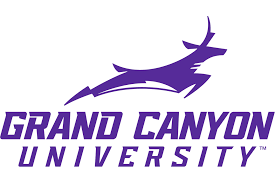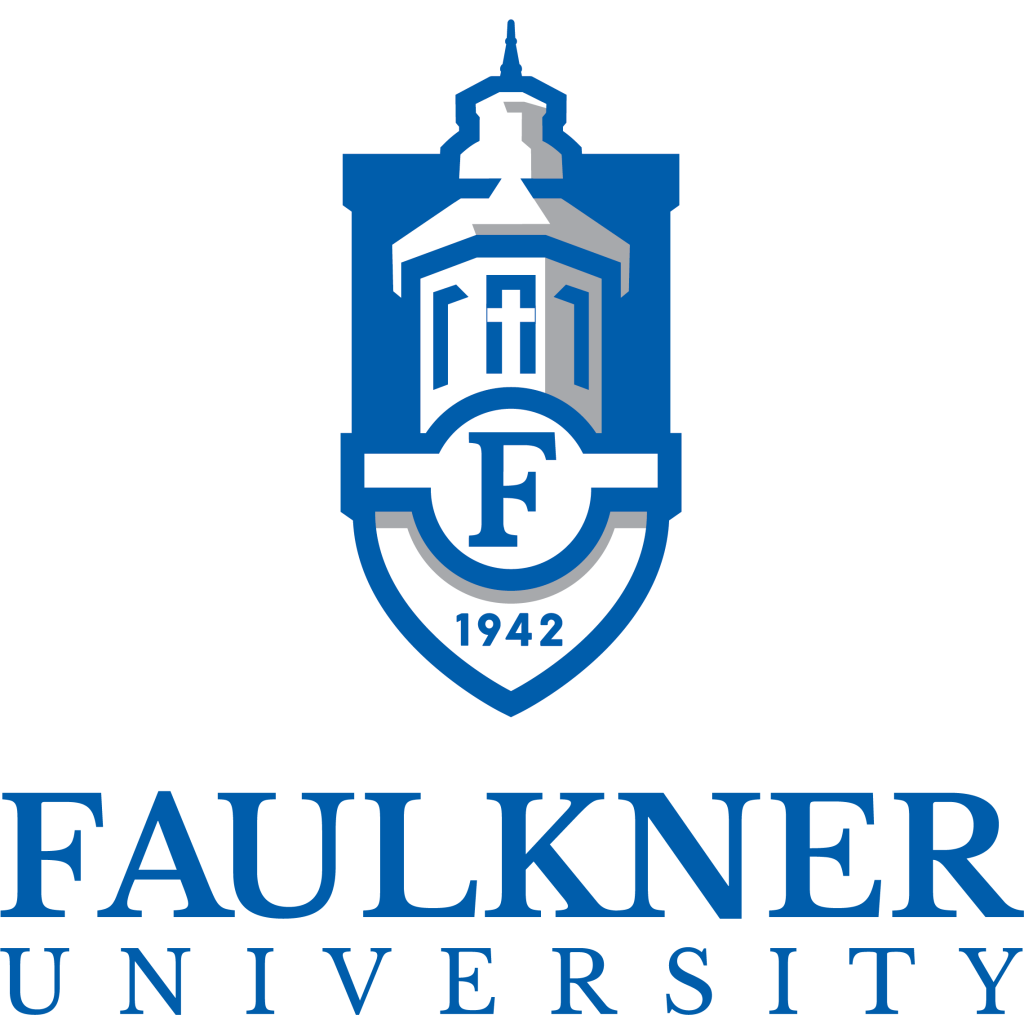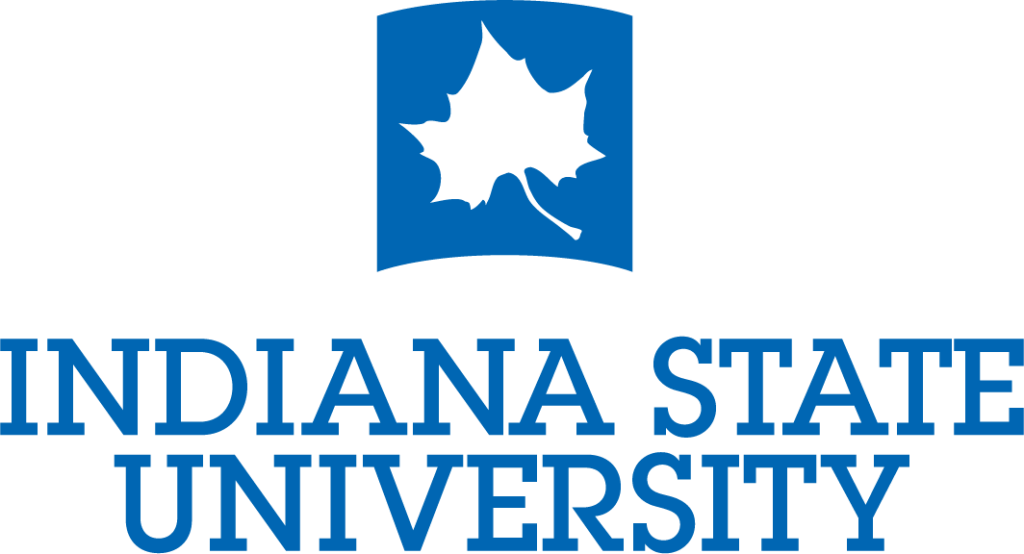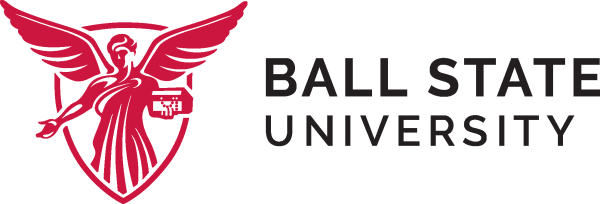Overview
Indiana has forged a distinct reputation in the sports world thanks to its apparently infinite farmland, elite basketball players and teams, and of course the legendary Indianapolis 500. Whether you’re considering a job in a newly emerging branch of the sports industry or in a discipline that has thrived for as long as sports itself – sports psychology – the state is a great place to get your degree and start your career in sports. Sports psychology is the field of study that examines how psychological aspects impact exercise, physical activity, and athletic performance. Sports psychologists research how participating in athletics may improve one’s health and well-being. Psychology is a tool that athletes can use to improve both their physical and emotional health. There are several accredited schools and universities in Indiana that offer sports psychology courses. Some institutions offer sports psychology bachelor’s degrees, while others offer master’s degrees or higher-level programs.
Sports psychology bachelor’s degrees are not particularly frequent. Those that do exist often fall under the scope of a psychology degree. If the program you wish to attend doesn’t exist, think about majoring in kinesiology, exercise science, sport science, or even better, psychology. The typical courses in this curriculum include Introduction to Psychology, Introduction to Sport Psychology, Psychology of Coaching, Research Design, and Probability and Statistics.
On the other hand, master’s degree programs in sports psychology fall within the Master of Science or Master of Art categories. There are also Master of Education degrees that are tailored exclusively for school counselors. Programs leading to a master’s in sports psychology may offer courses on the relationship between psychology and sports, athletic performance, kinesiology, and biomechanics. Classes address a variety of topics, including the biological foundation of behavior, performance improvement, and ethics.
Finally, doctoral degrees are highly personalized to your interests, but they are typically structured to include coursework in the concentration, allied fields, research and statistics, and teaching methods. Many courses, such as psychopathology, counseling concepts, and research design, may be familiar to readers from previous studies, but they are designed for advanced students.
If you’re interested in a career in sport psychology, learn more about the various programs available at these accredited universities in Indiana.
ADVERTISEMENT
Featured Sports Psychology Degree Programs

- 100% Online Courses
- Affordable Tuition
- Large Alumni Network
Grand Canyon University Online
M.S. in Psychology: Health Psychology
Explore the intersection of biological, social and psychological factors, and their effects on health, wellness and illness.

- Affordable Tuition
- Flexible Online Courses
- HLC Accredited
Grand Canyon University Online
B.S. in Performance and Sports Psychology
Earn you B.S. in Psychology with an Emphasis in Performance and Sports Psychology with Grand Canyon University Online.
What Will I Learn in A Sports Psychology Program?
Degree Timelines
A bachelor’s degree takes four years of full-time study, whereas a master’s degree takes only two years. While some MA sports psychology programs may require 30 to 48 credits, some MS sports psychology programs require 60 credits. Credits and program lengths vary by college and are influenced by factors such as whether students must complete an integrative capstone project, a thesis, or a practicum. Lastly, students frequently need between 39 and 60 credits to graduate from Ph.D. programs.
Curriculum and Example Courses
Regardless of the level of degree you pursue, you will most likely take similar basic courses. The following are some examples of sports psychology courses you could take:
Role of Nutrition in Sports Psychology
Students can take courses that focus on the role of nutrition in sports and the foods, drinks, and nutritional supplements that can be used to achieve peak athletic performance. Students frequently look into the effects of consuming the proper foods and beverages on the body while participating in physical exercise, with a focus on the relationship between energy intake and expenditure that assists athletes in maintaining a healthy balance. Nutrition courses may cover topics such as nutritional periodization, body composition, macronutrient recommendations for various types of athletes, and evidence-based nutrition research.
Sports Psychology Theory and Application
Students are frequently offered classes on applied sports psychology and how it relates to athletic behavior. The fundamental theories of applied sports psychology will be discussed, as well as how they can be applied to investigate motivation and the relationship between athletes and coaches. Additional research areas could include the psychological factors that influence athletes’ performance, such as anxiety, as well as appropriate therapeutic approaches.
Biomechanics
These classes focus on the kinetics, torque, and biomechanical stress that can occur during athletic exercise. Students will learn how connective tissue, muscle, and bones, in particular, affect biomechanics and human movement. Students could also learn about biomechanical issues that can limit an athlete’s ability to perform at peak levels.
What Are The Standard Entrance Requirements to Enroll?
Admission to a bachelor’s degree program typically requires a high school diploma or GED, as well as a GPA of 2.0 or higher. After being admitted to the institution, you may be required to take introductory psychology and statistics courses at the undergraduate level before being formally accepted into the program. A typical master’s program, on the other hand, may require a bachelor’s degree in psychology or prerequisite coursework in the subject, as well as recommendation letters, at least one of which must come from an undergraduate professor, a minimum GRE score of around 300, and a minimum GPA of 3.0. Finally, while a master’s degree is not required to enroll in a PhD program, it is very common for one to be required. In any case, you must have a solid foundation in the discipline. Academic references, GRE scores, and academic transcripts will almost certainly be requested, just as they would for a master’s degree. Programs frequently seek candidates with a 3.0 GPA, above-average GRE verbal and quantitative reasoning scores, and an analytical writing score of 4 or higher.
ADVERTISEMENT
Featured Sports Psychology Degree Programs

- 100% Online Courses
- Affordable Tuition
- Large Alumni Network
Grand Canyon University Online
M.S. in Psychology: Health Psychology
Explore the intersection of biological, social and psychological factors, and their effects on health, wellness and illness.

- Affordable Tuition
- Flexible Online Courses
- HLC Accredited
Grand Canyon University Online
B.S. in Performance and Sports Psychology
Earn you B.S. in Psychology with an Emphasis in Performance and Sports Psychology with Grand Canyon University Online.
Indiana Bachelors Degrees in Sports Psychology
A Bachelor’s degree is a necessary step in becoming a psychologist. The right program lays down the foundational knowledge that the student will implement later in the real world. The right program will also make the transition from a Bachelor’s degree to a Master easier. Here’s a breakdown of great options for Bachelor’s Degrees in Sports Psychology within the state of Indiana.
Indiana University Bloomington

Bachelor of Science in Kinesiology
This Bachelor of Science in Kinesiology degree from Indiana University Bloomington provides students with a broad foundation for students who plan to further their science education later on at a graduate or professional level in exercise physiology and sports psychology. Students with this major are primarily preparing for graduate work in physical education, psychology, biomechanics, and sports medicine with foundational coursework covering Intro to Kinesiology and Public Health, Structural Kinesiology, Statistical Techniques, and Intro to Student-Athlete Counseling Psych. Majors of this program will have special opportunities to work with faculty research specialists specific to kinesiology and internship opportunities outside the department in various medical and allied health areas. Graduation requirements include completing general education requirements as well as a minimum of 120 successfully completed credit hours and a minimum of 2.0 cumulative GPA.
Accreditation:
Adams State University

Bachelor of Science in Sport Psychology
This course was designed to lay the groundwork on effectively developing and applying health, physical activity, and psychological principles in a career that could be built on through their learning and professional experiences at a graduate and doctoral level. The course emphasizes the role of the brain in human performance, and students are expected to learn how to influence sports exercise environments, shape group processes, and improve performance to enhance overall well-being. Key courses of this program include Sport Psychology and Methods of Coaching. Upon graduation, students are expected to be equipped with an understanding of the psychological and physiological influences on sports performance in preparation for their graduate degree program.
Accreditation:
Grace College

Bachelor of Science in Sport Psychology
The Sport Psychology minor at Grace College offers a unique program that integrates counseling psychology with sport management within a Christian college context. Focused on the psychological effects on athletic performance, this program prepares students for impactful careers in Sport Psychology, including team coaching, research specialization, and teaching. Emphasizing real-world experience, the curriculum enables students to make workable connections between psychological principles and athletic performance, all taught from a biblical worldview. Highlighted by faculty such as Carol McGregor, M.A., the program is renowned for its hands-on learning opportunities and its commitment to fostering character, competence, and service in students, aligning academic rigor with Christian values. This minor is ideal for those serious about a career in Sport Psychology, seeking a comprehensive education that blends psychological insights with faith-based perspectives.
Accreditation:
Online Bachelors Degree in Sports Psychology in Indiana
Faulkner University

Bachelor of Science in Sports Psychology
The Bachelor of Science in Sports Psychology at Faulkner University is an online program designed for those interested in supporting athletes through mental and emotional challenges. This program equips students with the necessary skills and knowledge to offer mental and emotional support to athletes of all ages and competition levels. Career paths for graduates include roles such as head or assistant coach, high school athletic academic advisor, counselor, member of an athletic training team, fitness instructor, and physical rehabilitation assistant. While a doctoral degree is required to become a fully licensed sports psychologist, this bachelor’s degree serves as an essential first step in the field. Faulkner University’s program stands out for its convenient online format, allowing flexible learning tailored to individual schedules, and its faith-based curriculum, offering a more intimate and mentorship-rich educational experience. Students at Faulkner benefit from small class sizes and a family-like atmosphere, fostering lifelong relationships and a deep understanding of their field of study within a Christian worldview.
Accreditation:
Indiana State University

Bachelor of Science in Psychology
This program from indiana State University is a flexible degree program, making it an ideal stepping stone for those looking to pursue further studies at the graduate level in the Sports Field. The curriculum includes foundational courses that include general psychology, ethics, and statistics along with a wide range of electives that cover the psychology of human behavior, cognitive psychology, and abnormal psychology. A unique feature of the program is that they require students to take the “Careers in Psychology” course, where students will develop a career plan with their academic advisor to ensure the alignment of their educational and career goals. Graduates of this program are well-prepared for a variety of career paths in service industries, research, and business. The online format of the program, taught by full-time faculty at Indiana State, offers flexibility and convenience for students balancing their studies with other commitments.
Accreditation:
Indiana Masters Degree in Sports Psychology
A Masters Degree is a necessary step on the way to becoming a Sports Psychologist. Here’s a breakdown of some of the top programs within Indiana.
Indiana University

Master of Science in Kinesiology, Exercise and Sport Psychology Track
Delivery Method: On-Campus
Credits Required: 35 Credit Hours
Students who want to concentrate on scholarly work and research that stresses the interplay of mind and body in sport and exercise can consider the Exercise and Sport Psychology concentration in the Master of Kinesiology degree program. As a result, this specialization’s coursework covers both psychology and a few limited areas of biology. Exercise and mental health, exercise behavior from sedentary to active, personality, mood, and athletic performance, as well as the neurological underpinnings of athlete pace, performance, and placebo effect, are among the subject topics covered. Counseling Student Athletes, Advanced Theories in High Level Performance, Factors Affecting Human Performance, Nature and Basis of Motor Skills, and Learning and Motivation are a few examples of courses. Admission requirements include a statement of purpose, official transcripts from all post-secondary institutions, three letters of recommendation, and a CV.
Accreditation
Ball State University

Master of Arts or Master of Science in Sport and Exercise Psychology
Delivery Method: On-Campus
Credits Required: 33 Credit Hours
This master’s program is designed to provide students with a well-rounded educational experience in the field of sport and exercise psychology, all while learning in a collaborative, mastery-oriented environment. Its goal is to prepare students to be competitive applicants for doctoral programs by providing them with research and applied opportunities that they are interested in through a scientist-practitioner approach. Psychology of Injury Rehabilitation, Sport Psychology, Practicum in Sport and Exercise Psychology, Psycho-Social Processes of Sport and Physical Activity, Psychology of Exercise and Health, and Sport Sociology are all required courses. To apply, you must submit a resume, a statement of purpose or letter of intent, three letters of recommendation, and your highest earned degree transcript.
Accreditation
Indiana Online Masters in Sports Psychology Programs
Ball State University

Master’s Degree in Sport and Exercise Psychology
Designed to offer students a well-rounded education experience in Sport and Exercise Psychology, this program is focused on preparing students to create competitive applicants for doctoral programs by offering them research and applied opportunities of interest. The Masters in Sport and Exercise Psychology at Ball State allows students to have the opportunity to work with a variety of clients, including NCAA Division 1 athletes, club sports teams, youth athletes, and performing art students. Their sport and exercise labs are multipurpose labs for students to utilize during their graduate work. Upon graduation, students were expected to be able to synthesize literature, formulate research projects, and conduct studies, all while demonstrating the ability to actively design and implement effective psycho-social mental skills interventions and techniques.
Accreditation:
Adams State University

Master of Science in Applied Sport Psychology
The online Master of Science in Applied Sport Psychology from Adams State University is comprehensive in that it is a 36-credit program designed for students interested in becoming sport psychology professionals. This program is notable for being the first fully online Applied Sport Psychology master’s degree in the U.S. it emphasizes the interplay between theory, research, and practical application in sport psychology. The curriculum covers a wide range of topics, including sport physiology, mental health, diversity and equity, and ethics. Key courses of the program include Introduction to Research, Sport Psychology, Applied Sport Psychology, and Mental Strength and Conditioning. Designed for flexibility and convenience, the program was designed for students with full-time careers and can be completed within two years, including all coursework and internships.
Accreditation:
Purdue Global University

Master of Science in Psychology
The Master of Science in Psychology program at Purdue Global University offers a comprehensive online curriculum designed for students aiming to make a significant impact in various psychology-related fields. This program allows students to choose one of four concentrations: Addictions, Forensic Psychology, Industrial/Organizational Psychology, and General Psychology. Each concentration is tailored to provide specialized knowledge and skills, preparing students for specific career paths such as counseling clients with addiction issues, applying psychological theories in legal settings, or utilizing psychological principles in business. The program emphasizes practical application, ensuring that students gain hands-on experience they can immediately apply in their careers. Faculty members and experienced psychology practitioners guide students through a curriculum that combines theoretical knowledge with real-world application. This program is ideal for those looking to counsel, empower, and drive change, whether in clinical settings, the corporate world, or the legal system. Graduates are equipped to pursue various roles in service industries, research, government, and business sectors, including advertising and marketing. The program’s online format offers flexibility and convenience, making it suitable for students balancing education with other commitments.
Accreditation:
Indiana Doctoral Programs in Sports Psychology
A PhD or PsyD is necessary to gain the level of education and work experience required to become a licensed professional. Indiana University offers a great program in Human Performance.
Indiana University

Ph.D. in Human Performance
Delivery Method: On-Campus
Credits Required: 90 Credit Hours
Human performance encompasses more than just athletic performance; it includes the physiological, neurological, psychological, and mechanical aspects of our daily lives. This doctorate in human performance can be tailored to your specific interests and choose from one of its four emphases: Biomechanics, Exercise Physiology, Motor Learning/Control, and Sport Management. Students will take courses in exercise physiology, physical activity, cognitive and sensory motor control, motor learning, sport psychology, or biomechanics, as well as a minor outside of the Department of Kinesiology. Admission requires a statement of purpose, three letters of recommendation, a CV, and official transcripts from all undergraduate and graduate institutions attended.
Accreditation
Career & Salary Opportunities in Sports Psychology in Indiana
Indiana is more than just a superb basketball state. The Indianapolis 500 has been going strong for well over a century and has the largest single-day sports audience around the globe. Numerous development and minor league clubs, as well as big and local sporting events, are spread around the state to capitalize on an engaged audience. These organizations and competitions might serve as the ideal launching pads for graduates and students pursuing jobs in the sports business.
Your career path in sports psychology will be determined by a number of variables, such as the amount of education you want to pursue, the kinds of clients you are interested in working with, and the type of environment you want to work in. Some students choose to coach athletes. Others work as consultants who incorporate what they have discovered about performance into corporate initiatives. An extremely popular job path is that of a certified sports psychologist. In this line of work, you’ll assist your clients in achieving their objectives, whether they’re improving their performance, developing stronger bonds with their teammates or coaches, or overcoming a personal challenge like eating disorders, depression, behavioral disorders, or other issues that also affect people in the general population. But as a sports psychologist, you will be specially qualified to support patients who are struggling with these problems in the setting of athletic endeavors and the stress and difficulties they entail.
Other sports psychology careers include the following:
- Sports Psychology Professor
- Sports Psychologist
- Exercise Physiologist
- University Sports Coach
- Health program coordinator
- Private practice clinical sport psychologist
- Sport psychologist for a club, college, Olympic, or professional team
- Sport rehabilitation specialist

